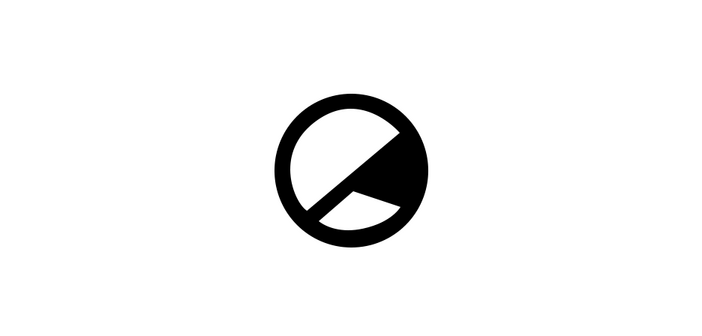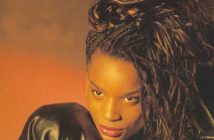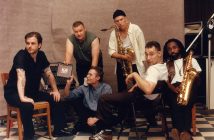Now that we've all calmed down and accepted the immutable fact that the album formerly known as Boys Don't Cry has in fact landed, was it worth the excruciating wait? Thankfully for this writer, it's a resounding "YES!"
-
10
If there was a Frank Ocean joke it might go something like this: “What’s the difference between Frank Ocean and Christ? One’s a carpenter who divided the whole of humanity into those who decried him as a charlatan and those who praised him as their saviour… and the other one’s Christ.” Ever the master of the obfuscating publicity stunt, Ocean had everyone so vexed over the release of his sophomore album – then thought to be called Boys Don’t Cry – that when the live feed that would become Endless first began streaming on August 1st the internet exploded with theories, rumours, and general confusion over what the hell was going on.
Once that died down, things went quiet for a couple of weeks, with many resigning themselves to the depressing conclusion that they’d have to wait until November before seeing any action on the album front. Then came Endless, a visual album made up of footage from that stream featuring Ocean gradually assembling a staircase from scratch and climbing it once finished. An elegant metaphor for his rise to fame, the staircase’s eventual unveiling put an end to the disquietude first caused by the mysterious footage. Endless featured some of his most experimental music to date and succeeded in tricking everyone into thinking it was the album they’d been waiting for, only for him to drop Blonde two days later in a typically grandiose fashion, with four pop-up stores opening in Los Angeles, New York, Chicago, and London. Each reportedly stocked a mere 400 limited copies of the Boys Don’t Cry magazine – think a poem by Kanye West about McDonald’s, a screenplay by Ocean, prosaic ramblings that elucidate the title, and a physical copy of Blonde that not only reorders the songs but contains some different ones entirely.
Although not the grandiose epic many were anticipating after his everything-but-the-kitchen-sink approach on channel ORANGE, Blonde still has many parallels with its predecessor. Both run at around an hour, include a homespun philosophical voicemail from Rosie Watson (a friend’s mother) and other skits, are soaked in nostalgic summer-loves-of-yore melancholy, and are deeply ingrained with the particular locales that defined periods in his life – channel ORANGE with his adoptive Los Angeles and Blonde with his native New Orleans and the subsequent moves following Hurricane Katrina.
Beyond that, the similarities between the two albums pretty much end as they are worlds apart aesthetically. The former utilises a slick, meticulously devised sound, perfectly capturing the gleaming superficiality of the LA lifestyle, and Frank’s wide-eyed wonder (and shrewd cynicism) upon taking it all in. The latter, although clearly highly-wrought and carefully crafted, goes for a more haphazard, improvisational feel, largely eschewing the sumptuous neo-soul we’ve come to expect from his old mixtapes and 2012’s sprawling studio debut. Instead, he opts here for a sparser and more fragmented texture, featuring both acoustic and electric guitars more prominently than the lush synthesisers he normally champions.
Blonde‘s collaborations are notable by their brevity: Beyoncé rocks up on summery jaunt ‘Pink + White,’ although I defy you to identify her vocals, weaved as they are seamlessly into the overall texture; Kendrick Lamar enters into the latter half of polemical Congo ballad ‘Skyline To,’ although you wouldn’t know it from the occasional blurted word here and there (“Smoke!” and “Haze!”). Not many artists would have the audacity to bring in arguably two of the biggest names in R&B and hip-hop respectively for what are essentially backing parts, but if they’re happy to take a back seat in the proceedings then why not? It’s testament to the quality of the album as a whole and to the respect Ocean has accrued within the industry that when these collaborators disappear as quickly as they arrived we are intrigued and further drawn in rather than outraged.
André 3000 of Atlanta hip-hop duo Outkast steps in on ‘Solo (Reprise)’ to deliver what must be one of the most fast and furious raps ever (excluding those of the superhuman league-of-his-own Busta Rhymes, of course), cramming into a mere 78 seconds an intensely bitter diatribe against all manner of things from hypocritical women who undergo plastic surgery whilst “demanding something real from a man” to rappers who lazily employ ghostwriters. Simultaneously, he presents the flipside in both cases: acknowledging that he doesn’t know what it’s like being a woman and cynically wondering at the finale, “Was I working just way too hard?” It’s an astonishing moment on the album, not least because it’s by far the most aggressive musically (along with the subsequent opening to ‘Pretty Sweet,’ a Sgt. Pepper-esque use of aleatoric chaos). Coming as one of André’s precious few recent appearances, it caused quite a stir upon the album’s arrival with many hailing it as a potential signal of his return to the game proper.
British electronic artist James Blake makes an appearance on ‘White Ferrari,’ but there’s some consternation over to just what extent. Some argue that the achingly tender closing verse is delivered by him, although other sources suggest it’s yet another effect-laden incarnation of Ocean himself singing it. Some have even suggested it’s Bon Iver’s Justin Vernon, although there’s no real evidence to support that claim. At any rate, it’s probably the most heartrending song on the album: atop a bed of softest synths, Ocean lays a love story of aching beauty that looks back at the experience of being in love through a druggy haze of rose-tinted recollections.
It’s this theme of fleeting romance that defines Blonde as a whole, ranging from cold statements of exploitative lust (“Blow me and I’ll owe you two grams when the sun rise”) to profound confessions of deepest heartbreak (“Keep a place for me… / I’ll sleep between y’all, it’s nothing”). Often the two intermingle on the same song: “…that clinic kill my soul / But you gotta hit the pussy raw though,” he sings on ‘Solo,’ going from mourning the premature death of his aborted child to brusquely stating that sex is simply more enjoyable without protection. This sudden contrast of the crude latter statement is what makes the former all the more powerful, and indeed juxtaposition is something that he uses to great effect on the mercurially shifting Blonde: between short and long songs; ultra-smooth pitch-corrected vocals and off-key howls; and abrupt sex references and tender confessions of the heart. Sentimental and ponderous it may be, but let it never be said that Blonde is incoherent, for it is through Ocean’s antithetical ramblings that the album ironically finds its iron-clad consistency and sharp-edged concision. Paradoxical? Yes. Contradictory? No.
Blonde is out now via Boys Don’t Cry


![Midge Ure on Legacy, Live Aid, and his upcoming ‘Catalogue’ tour: ‘The idea that there could be an [AI] Ultravox in 40/50 years from now is terrifying’](https://theedgesusu.co.uk/wp-content/uploads/2024/03/download-214x140.jpg)

